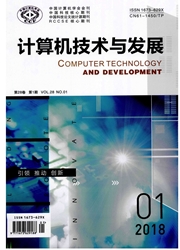

 中文摘要:
中文摘要:
将网络化控制引入传统的直线电机控制系统,充分发挥网络化控制的共享信息资源、减少系统布线、增加系统的灵活性和可靠性等优势,发展一种新型的网络化直线电机迭代学习控制模式。由于通信网络的限制,信息在网络通道中出现传输时延在所难免。针对测量信号在网络通信中存在随机一步时延的直线电机迭代学习控制系统,分析研究了P型迭代学习控制算法的收敛性问题。在采用Bernoulli随机序列描述一步时延,并假设其属于某个给定的数值区间的基础上,利用压缩映射方法和A范数理论给出了P型迭代算法的收敛条件,从理论上证明了算法的收敛性并进行了仿真验证。理论分析和仿真验证结果表明,尽管系统存在随机一步时延,所运用的迭代学习控制算法仍能保证跟踪误差的收敛性。
 英文摘要:
英文摘要:
The networked control is introduced to the linear motor control system to develop a new type of iterative learning control for networked linear motor system, which has many advantages such as resource sharing, less wiring, better flexibility and reliability. Due to the constraint of the communication network, the transmission delay is inevitable. Considering the measurement signal having one-step delay ,the convergence problem of P-type Iterative Learning Control (ILC) algorithm has been analyzed for linear motor system. The one-step delay is described as a stochastic Bernoulli process with unknown probability under the hypothesis that the process belongs to a known numerical interval. On this basis, both of the contraction mapping theorem and A norm theory have been used to derive the conver- gence condition of the P-type algorithm. The convergence of the algorithm has been proved by theory and simulation. Although the sys- tem has one-step delay, the results show that the tracking error can still be converged by using the P-type iterative learning control algo- rithm.
 同期刊论文项目
同期刊论文项目
 同项目期刊论文
同项目期刊论文
 Decentralized Control for Power Systems Components Based-on Nonlinear Differential-Algebraic Equatio
Decentralized Control for Power Systems Components Based-on Nonlinear Differential-Algebraic Equatio Invertibility of Nonlinear Differential-Algebraic-Equation Subsystems with Application to Power Syst
Invertibility of Nonlinear Differential-Algebraic-Equation Subsystems with Application to Power Syst Pinning Stabilization of Complex Networks Coupled with Time Delay and Disturbed with Stochastic Nois
Pinning Stabilization of Complex Networks Coupled with Time Delay and Disturbed with Stochastic Nois 期刊信息
期刊信息
